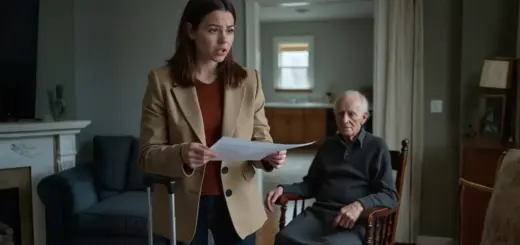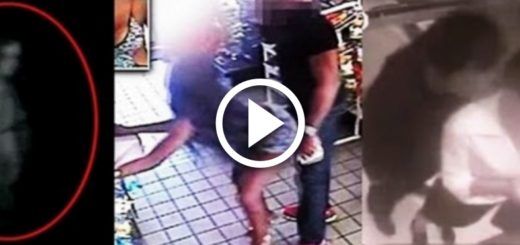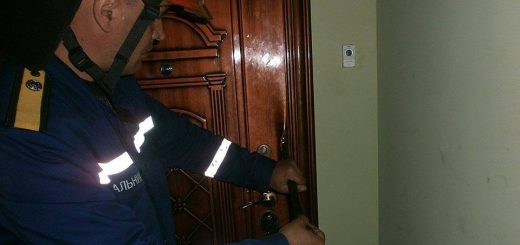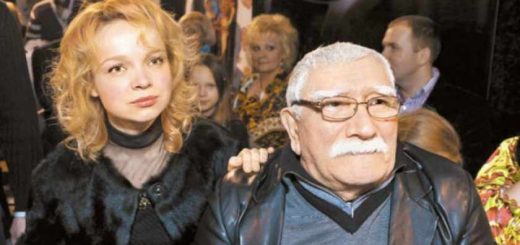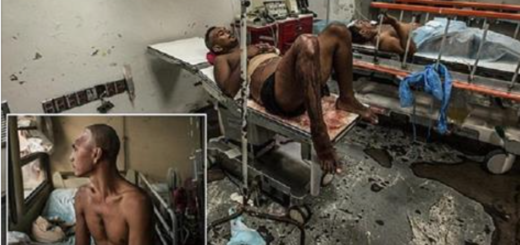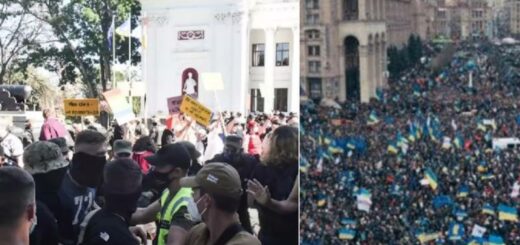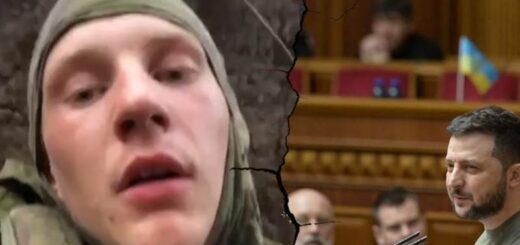“For over sixty years, Naval Special Warfare operators have represented the pinnacle of American military capability,” he began. “The men—and now women—who earn the right to serve in these units do so through an extraordinary demonstration of physical strength, tactical expertise, and unwavering character.”
His emphasis on the word “earn” was subtle but unmistakable, especially to those familiar with his views on gender integration. “Tonight, we continue a tradition that dates back to the earliest days of Naval Special Warfare. Each operator receives their call sign, a name that will follow them throughout their special operations career. These names aren’t chosen lightly; they reflect the essence of the operator, often commemorating a defining moment that revealed their true character under pressure.”
The ceremony proceeded with practiced precision. One by one, operators were called forward alphabetically, despite the previous announcement regarding seniority order—a change that caused subtle reactions among the graduating class. Each received a ceremonial chalice containing saltwater, symbolizing the element in which SEALs were born as operators. As they drank, Admiral Hargrove announced their call sign and its significance.
“Lieutenant Orion Thade,” the Admiral announced when Thade’s turn came, “your instructors and peers recognize your exceptional leadership during the Omen training evolution, where your decision-making under extreme conditions ensured your entire team’s survival. You will be known as ‘Beacon.’”
Thade accepted the chalice with evident pride, drinking the saltwater before exchanging a salute with the Admiral. As the ceremony continued, the operators’ row gradually emptied until only Arwen remained seated. The change in order had been yet another calculated move to isolate her at the conclusion, a final public reminder of her outsider status. When all others had received their call signs, Admiral Hargrove paused dramatically before addressing the assembly again.
“As many of you know, the integration of women into special operations roles represents a significant change to our historical composition. While the Navy follows lawful directives regarding this integration, it remains the responsibility of command to ensure all operators, regardless of gender, meet the unwavering standards that make our forces the world’s most capable.”
The message beneath his diplomatic phrasing was clear to everyone present. “Lieutenant Commander Arwen Blackwood,” he finally called, his voice carrying a subtle but unmistakable challenge.
Arwen stood, her movement economical and precise. She approached the stage with the measured cadence of someone completely in control of every muscle, every expression. Nothing in her demeanor suggested anxiety or uncertainty, despite the obvious tension in the room. Admiral Hargrove held the ceremonial chalice, studying her with eyes that had assessed countless operators throughout his career.
“Lieutenant Commander, you have participated in our advanced combat leadership program for the requisite period. Before assigning your call sign, perhaps you could share with our distinguished guests your most significant operational achievement to date.”
The request deviated from protocol. No other operator had been asked to justify their presence or qualifications. A subtle murmur passed through the audience as the impropriety registered. Arwen’s expression remained perfectly composed.
“With respect, Admiral, my operational history includes classified deployments that cannot be discussed in this setting.”
A thin smile crossed Hargrove’s face. “Of course. Most convenient.” He turned slightly to address the audience. “Call signs reflect achievement, character, and proven ability under fire. They are earned through demonstrable, exceptional service.”
He returned his attention to Arwen, extending the chalice with a gesture that managed to be both formally correct and subtly dismissive. “Nevertheless, tradition must be observed. Lieutenant Commander Blackwood, what call sign have you been assigned by your instructors and peers?”
The question was designed as a trap. As a recent transfer to the program who had been systematically isolated, Arwen hadn’t been included in the call sign deliberations that typically preceded the ceremony. By protocol, she should have had no answer. The room held its collective breath, anticipating her embarrassment. Even those who had come to respect her abilities expected this moment to reinforce the fundamental message: she remained an outsider to their brotherhood.
Arwen accepted the chalice with steady hands, her gaze never leaving the Admiral’s face. “Iron Widow, sir.”
The two words fell into absolute silence. For a moment, it seemed as though the entire room had been suddenly evacuated of air. Admiral Hargrove’s expression shifted from smug certainty to confusion to dawning horror in the span of seconds. The chalice slipped from his fingers, crashing to the stage floor and shattering into glittering fragments. Saltwater spread across the polished wood like spilled secrets.
“That’s not possible,” he whispered, all pretense of ceremony forgotten. “Iron Widow is a classified designation. You can’t possibly—”
“Seven years ago,” Arwen continued, her voice steady and clear enough to carry throughout the now-silent hall, “six SEAL operators were captured during a compromised intelligence operation in North Korea. They were held at a black site facility designated Songwon, presumed irrecoverable due to the political sensitivity of their presence in denied territory.”
Color drained from Hargrove’s face. His hand moved to the edge of the podium for support.
“Those operators included then-Captain Victor Hargrove,” Arwen continued. “After official rescue operations were deemed too risky, a specialized asset with the designation ‘Iron Widow’ executed an unsanctioned extraction, recovering all six operators despite sustaining significant injuries during the mission.”
From the audience, Lieutenant Thade stood suddenly, recognition transforming his features. “You carried me three miles through mountain terrain with a broken femur,” he said, his voice thick with emotion. “I never saw your face. They told us you were a local asset.”
Captain Reeve stepped forward then, removing her naval intelligence insignia to reveal the stars of a Rear Admiral. “Lieutenant Commander Blackwood’s identity as Iron Widow has remained classified at the highest levels for operational security. Her placement in this program was the final phase of a seven-year counterintelligence operation to identify the source of the original mission compromise.”
Admiral Hargrove swayed visibly, his face ashen. “This is irregular,” he managed, though his voice had lost all authority. “This ceremony has protocols.”
“Indeed it does, Admiral,” Rear Admiral Reeve interrupted. “Protocols that don’t include singling out specific operators for public humiliation based on personal bias.”
From his position in the audience, another operator stood, followed by two others who had been part of the captured team in North Korea. As one, they rendered a formal salute to Arwen. Not the casual acknowledgment of a ceremony, but the profound respect offered to someone who had saved their lives at great personal risk.
The gesture spread through the room as other special operators recognized the significance of what was unfolding. Within moments, nearly every military member present was standing at attention, saluting the woman they had just discovered was a living legend within their community.
Admiral Hargrove sank slowly into the chair behind him, the weight of recognition and shame visible in every line of his body. His carefully orchestrated humiliation had transformed into his own public undoing.
Arwen finally broke her composed silence. “Permission to address the assembly, Admiral Reeve.”
With Hargrove clearly incapacitated by shock, Reeve nodded. “Granted, Commander.”
Turning to face the still-standing audience, Arwen spoke with a quiet authority that nonetheless carried to every corner of the hall. “Seven years ago, I made a promise to the six men I pulled from that facility. I promised that I would find who betrayed them, no matter how long it took or how high up the chain of command the betrayal went.” She unpinned something from inside her uniform jacket—the widow spider brooch—which she now attached visibly to her collar. “That mission ends tonight with the identification of the compromise source.”
Every eye in the room followed her gaze to Admiral Hargrove, whose expression now showed the dawning horror of a man who realized he had been under investigation for years.
“The mission was compromised through a security breach at Naval Intelligence involving an Admiral’s access codes,” Arwen continued. “Those codes belonged to Admiral Victor Hargrove, whose terminal was accessed while he was supposedly in a classified briefing.”
“I was in that briefing,” Hargrove protested weakly. “I couldn’t have.”
“You left the briefing for twenty-three minutes,” Rear Admiral Reeve interjected. “A fact confirmed by multiple witnesses and security logs. During that time, your personal codes were used to access highly classified information about the North Korean operation.”
“That doesn’t prove intent,” Hargrove argued, desperation entering his voice. “It could have been negligence, leaving my station unsecured.”
“Which is why Lieutenant Commander Blackwood was assigned to this program,” Reeve finished. “To observe your reaction when confronted with the operative who saved the men your negligence nearly killed. Your systematic attempts to break her, to drive her out of the program, revealed a pattern of behavior consistent with someone desperately trying to protect their reputation at all costs.”
The hall remained silent as the full implications became clear to everyone present. Whether through negligence or something worse, Admiral Hargrove’s actions had nearly cost six operators their lives, and for seven years, he had never acknowledged responsibility. Instead, he built his reputation on their successful rescue while simultaneously working to undermine the very programs that had made that rescue possible.
In the heavy silence that followed, Lieutenant Thade stepped forward. Without speaking, he removed his newly awarded Trident pin and placed it on the stage before Arwen, a profound gesture of respect that acknowledged her as the true embodiment of everything the insignia represented. One by one, other operators followed suit until a small collection of Trident pins lay at her feet, a spontaneous recognition of her status among them that transcended formal ceremony or official designation.
Admiral Hargrove watched this unprecedented display with visible distress. “This is highly irregular,” he repeated, though his protest sounded hollow even to his own ears.
“On the contrary, Admiral,” Rear Admiral Reeve replied, “it is the most authentic expression of special warfare values I’ve witnessed in decades. These operators recognize one of their own—perhaps the best among them—regardless of gender or background. They honor excellence, courage, and sacrifice, precisely as they were trained to do.”

